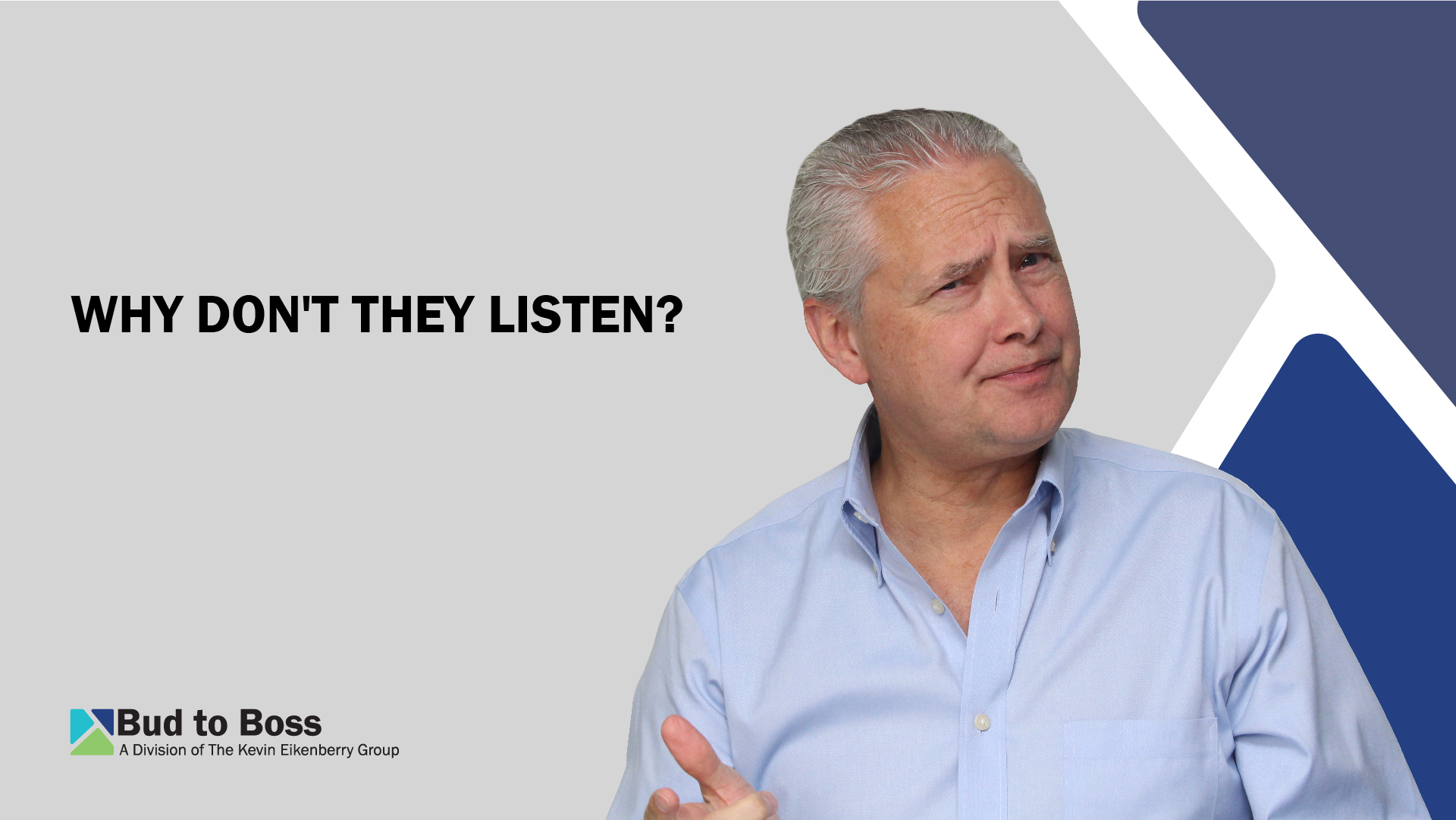
You’ve got questions, and we’ve got answers. Hi, I’m Kevin Eikenberry, answering the questions that new leaders ask us.
Actually, it’s our goal to help all leaders become more productive, successful, and confident. And that’s why I’m here right now. If you have to be watching us on YouTube, we’re glad you’re here. Make sure you subscribe so you get other videos in the future in this channel, and you can go back and watch some other ones, as well.
Today I’m answering a question that I get often asked, “Why don’t they listen?” Are you ready? Let’s get started.
Why don’t they listen? It’s an important question. I mean, we’re saying things to people. We need them to hear and understand us. It’s frustrating when they don’t. But really, there’s a problem with the question. The question is blaming them. Why don’t they listen? You see, the thing is that communication is message sent message received and message understood. And the front end of that is us.
Just because we sent the message doesn’t mean they will listen. After all, do you always listen? Okay. Now, that had been a little bit mean, the truth is, if we want people to receive and understand the messages that we’re sending, we need to quit blaming them and think more about what we can do to improve the chances that they’ll say, Hey, I want to listen.
And that includes things like thinking about your delivery, how you say it, how you look when you’re saying it. If you’re doing it virtually, are you using your camera or not? All of these things, if you’re sending in an email, how is it coming across? What’s my delivery? Right. Think about your timing. Is now the best time to send that message or to ask them that question?
If you walk by someone’s desk or by their workspace and they look harried and their hair is on fire, now might not be the best time to share your conversation with them, when they’re clearly focused elsewhere. Think about your timing.
Think about the message itself. What is your intention with this message? What are you really trying to get at? Are you using the right words?
We’ve already said thinking about the delivery of how we say it and how we look. But we also need to think about the message itself. And are we using language, saying things in a way that makes it easier for them to under stand?
And of course, we can always ask for feedback. We can ask for feedback about the way that we communicate in general to hopefully get better at it, making it easier for people and people being more willing to listen to us moving forward. But we can also ask for feedback in the time of conversation because sometimes we think they’re not listening. But maybe they did receive the message, and we just didn’t think that they did.
All of this is to say that we need to take some responsibility ourselves. Just asking why don’t they listen, is focusing in the wrong place. And oh the way, if you find that people never or rarely seem to be listening to you or you’re asking this question a lot, time to look in the mirror.
Let me close with today’s tweet. If people aren’t listening, you are at least partially to blame.
Hey, if you’ve got a question you’d like me to address in a future episode, I’d love to hear about that. And if you’d like more resources for you as a new leader or as an organization looking to support your new and frontline leaders, there are plenty of resources at KevinEikenberry.com. I hope you’ll go there.
And if you liked this video, give us a thumbs up. Subscribe. Do all those things. You know what to do. And if you really want to continue your path to becoming a better communicator, including getting people to listen, you might want to take a look at the DISC assessment that we provide that helps you understand the styles of others, which might help you be a more effective communicator with them and have them listen to you a little more often.

0 comments